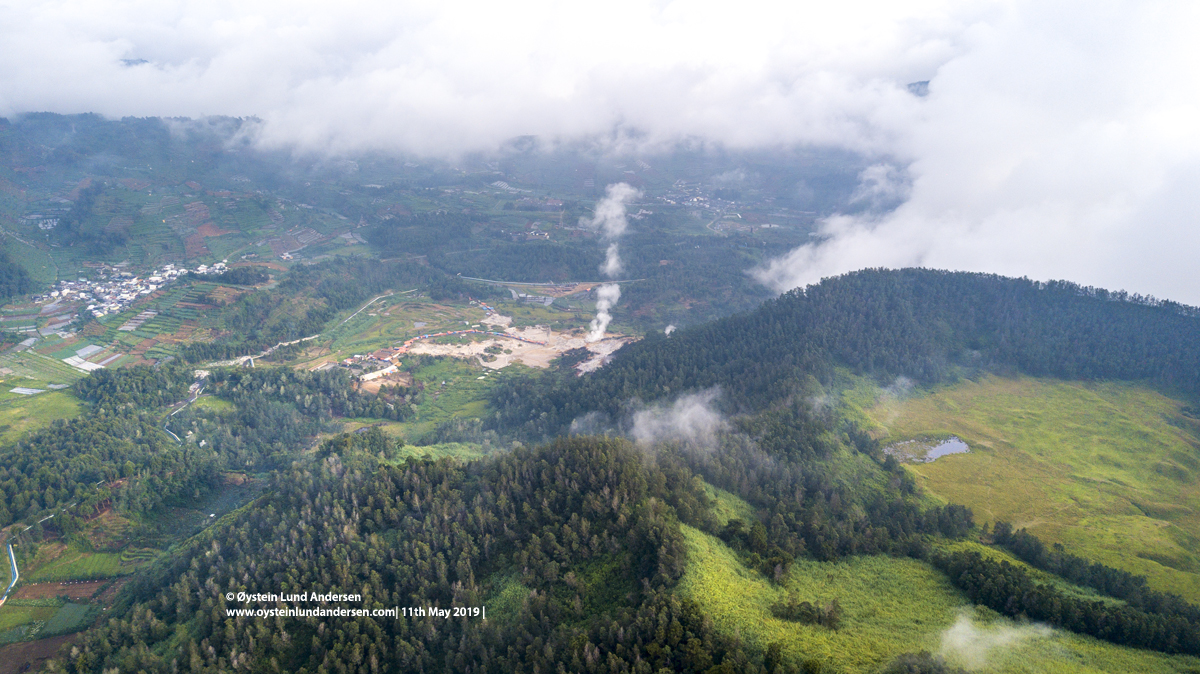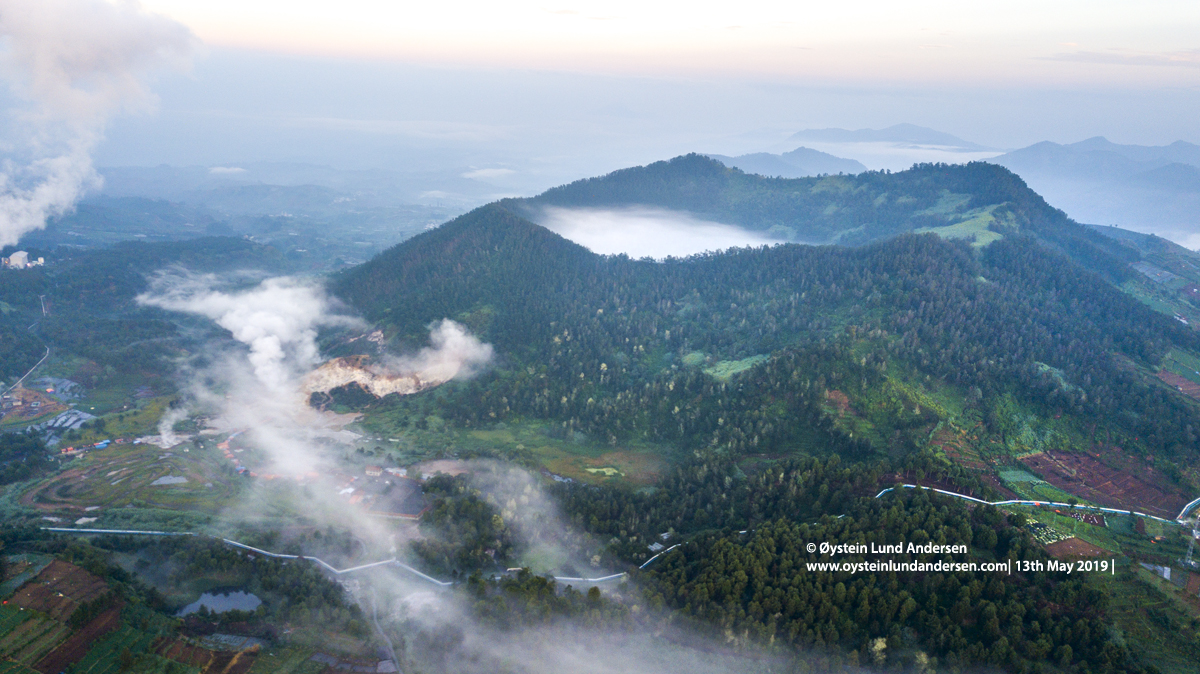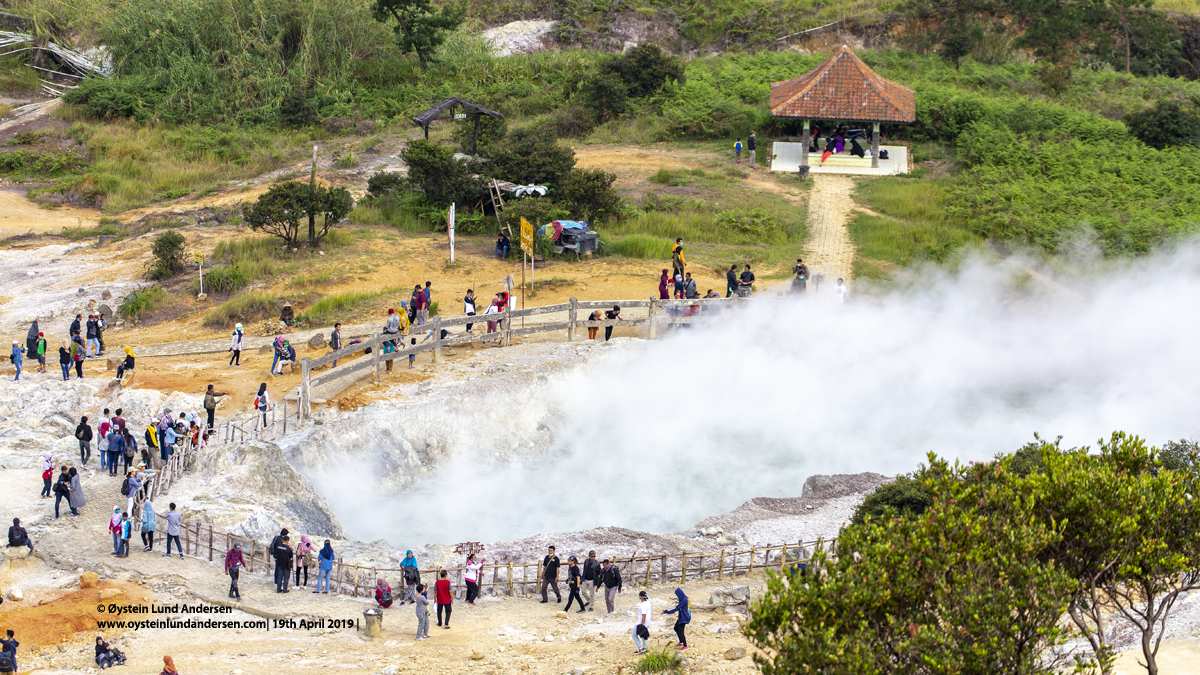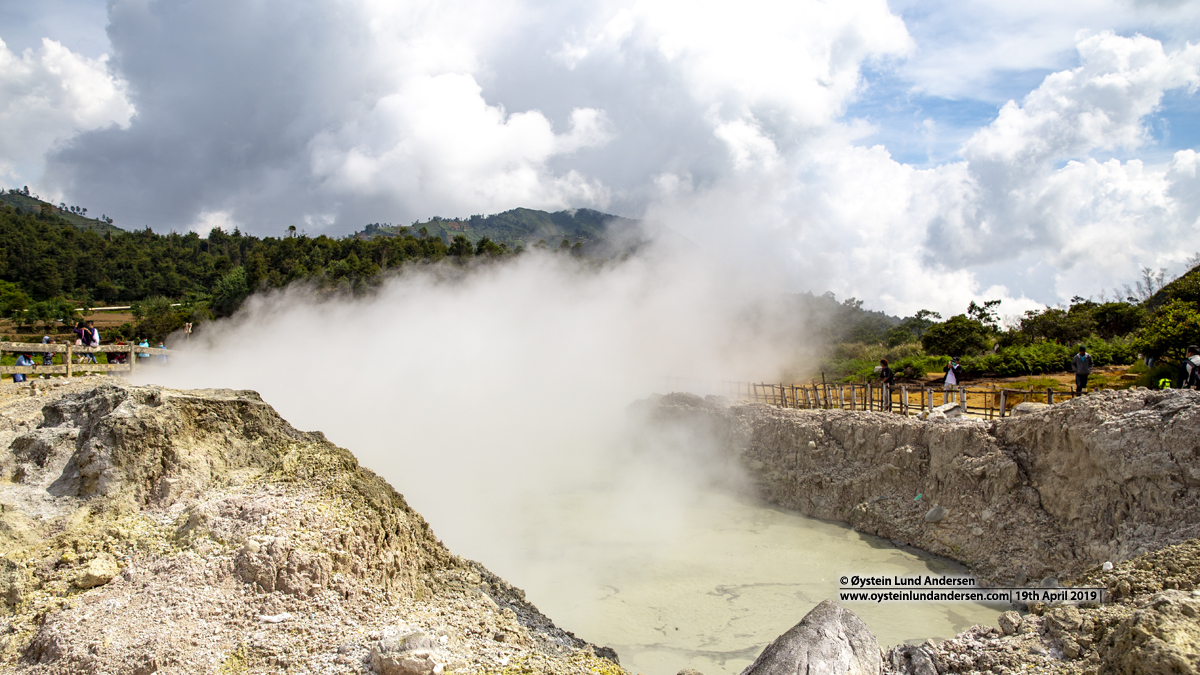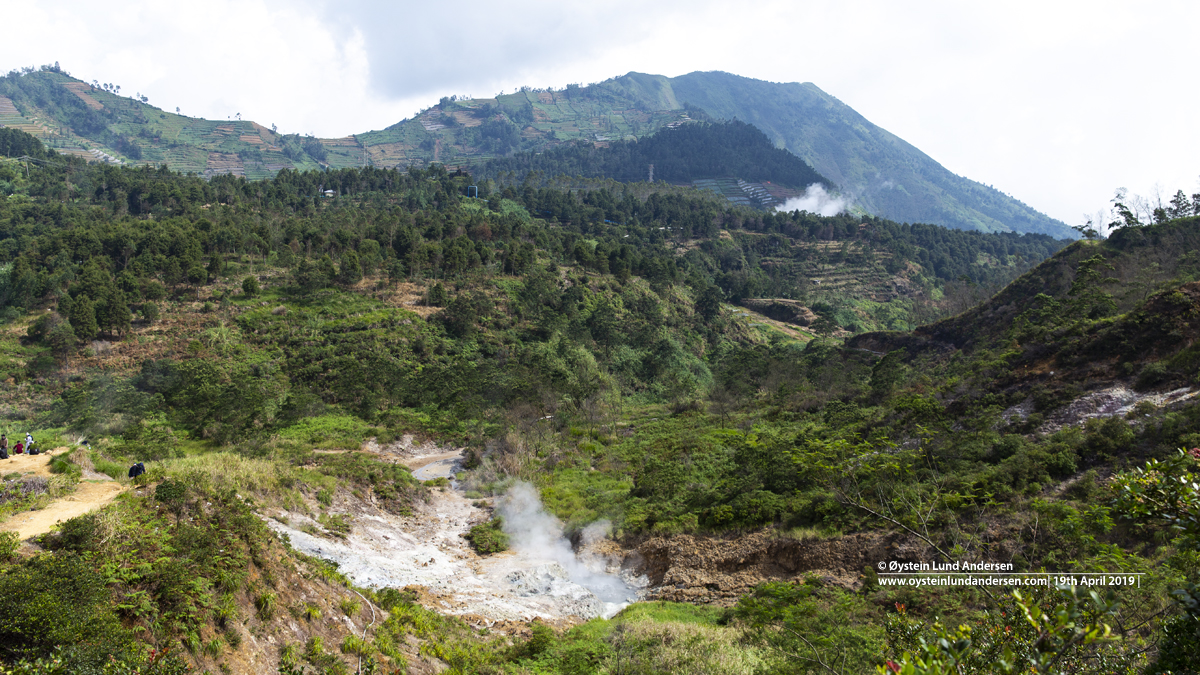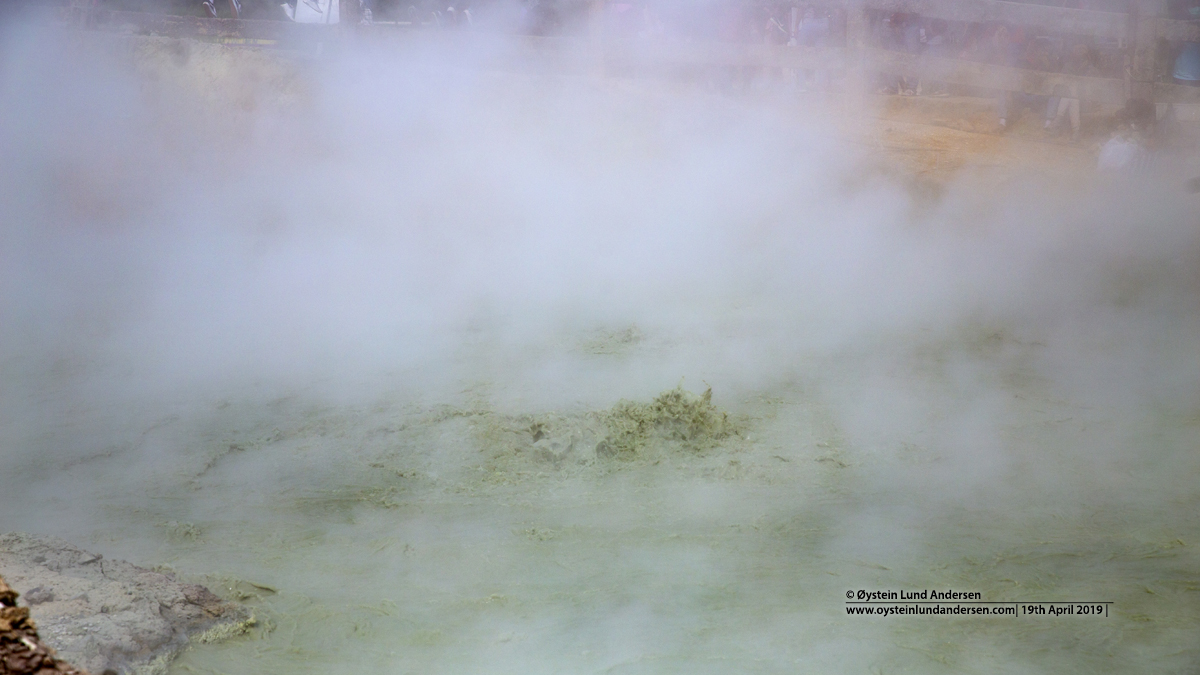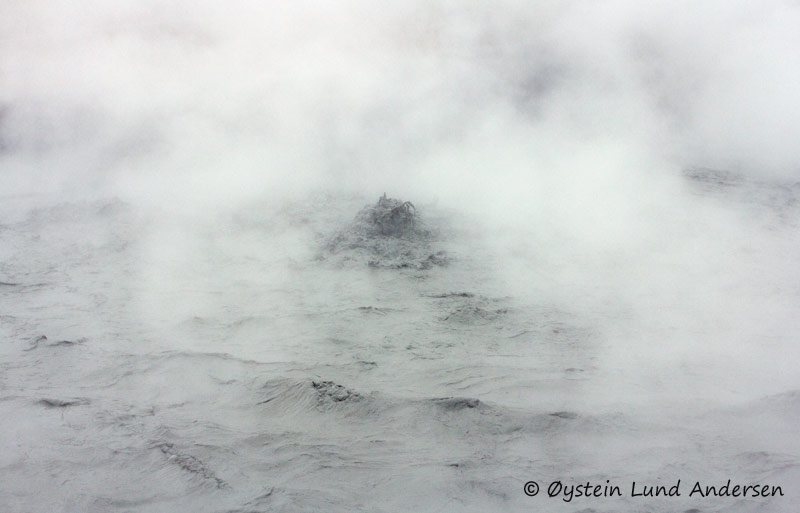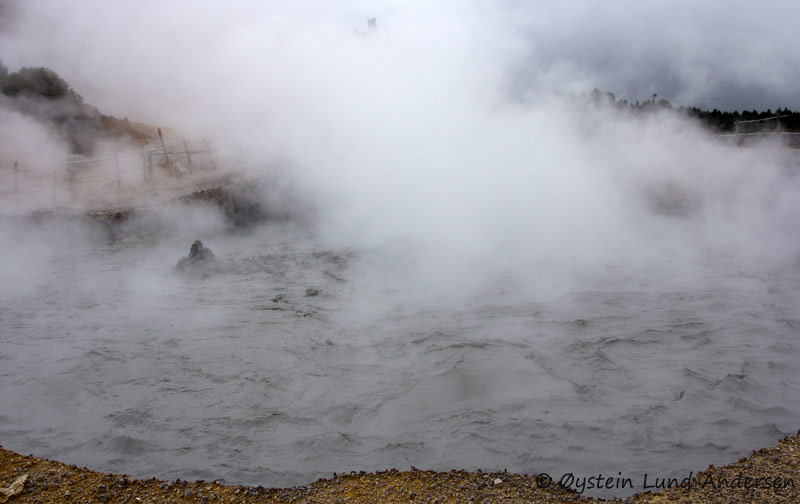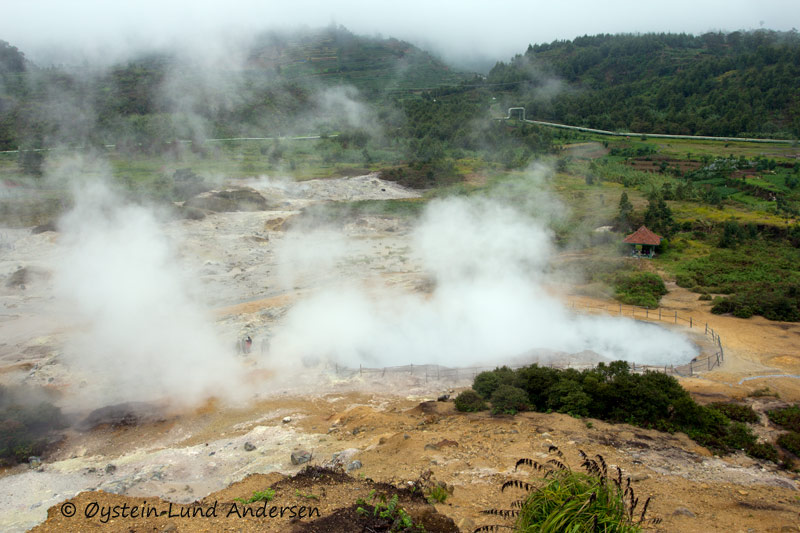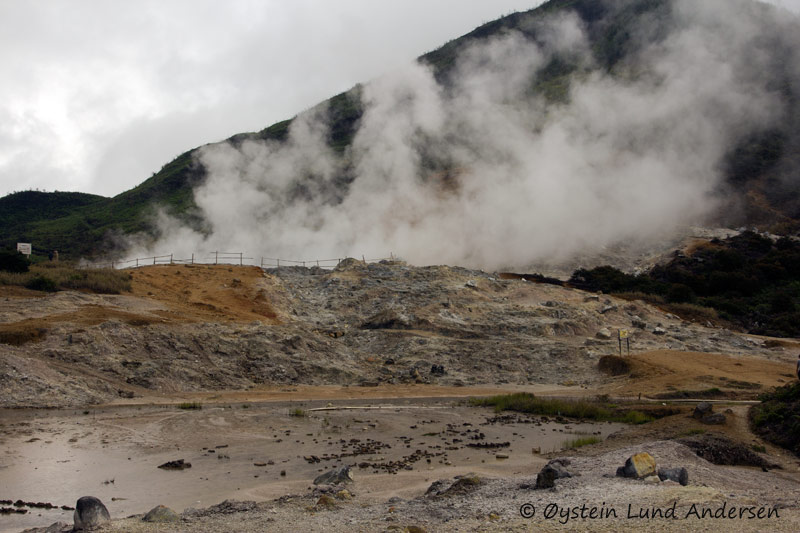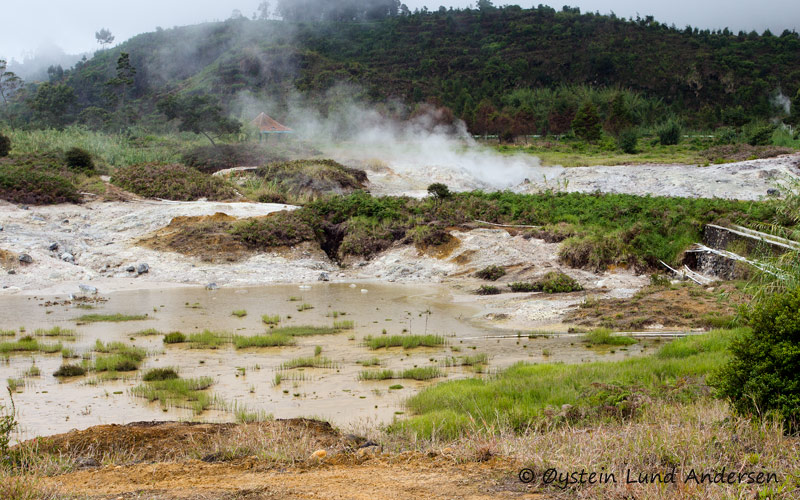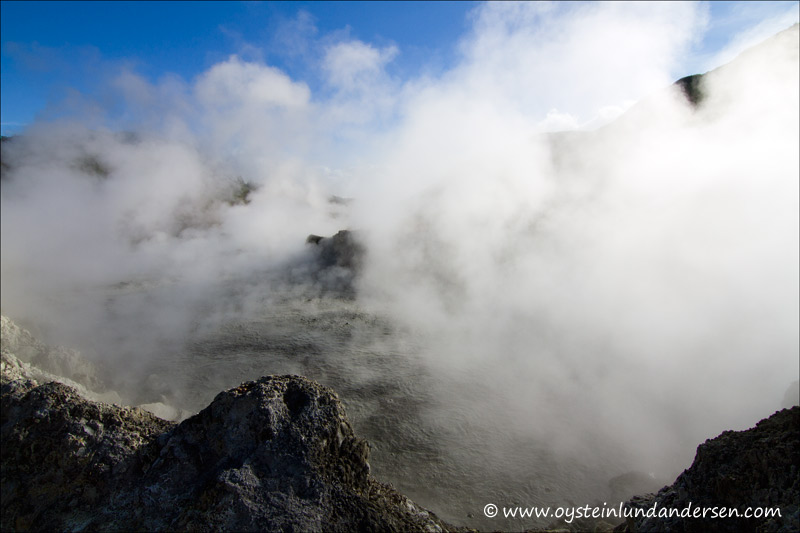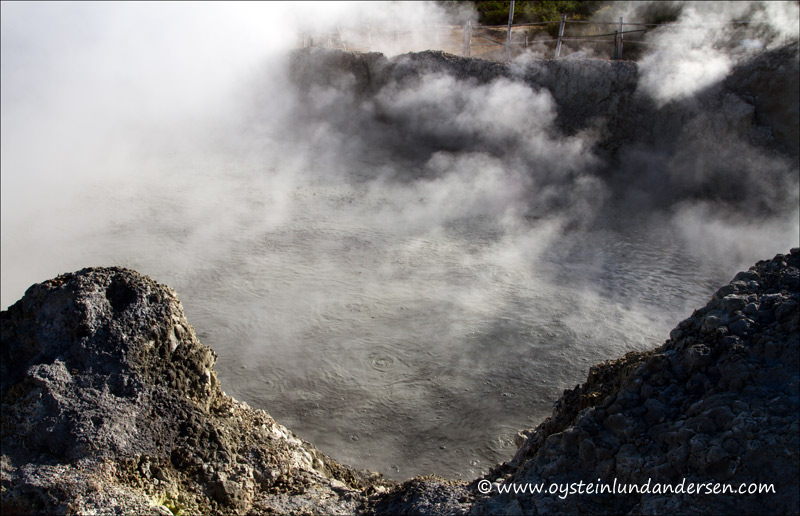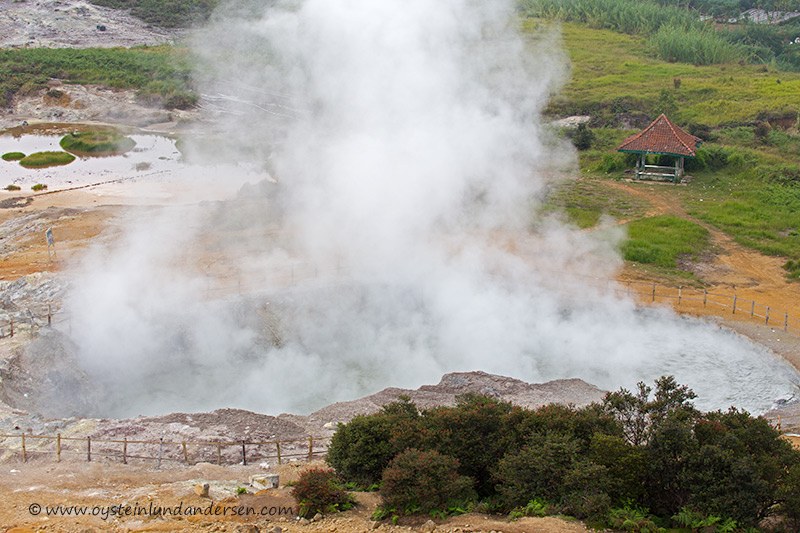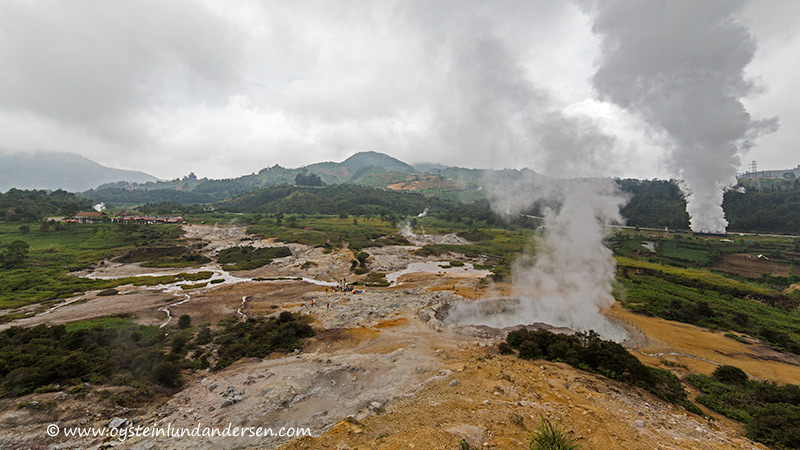The Dieng Plateau, or the The Dieng Volcanic complex, consists of two or more stratovolcanoes and more than 20 small craters and cones of Pleistocene-to-Holocene age over a 6 x 14 km area. There are
numerous surface manifestations of hydrothermal activity, including lakes, fumaroles/solfatara and hotsprings. The last magmatic (as of 2019) eruption, thought to have occurred in the Dieng Volcanic Complex was at the Pakuwaja cone, during a eruption in 18th Century.The area is also known for the development of geothermal resources and lethal outbursts of gas. Scattered temples are the witnesses of the ancient Hindu culture that once reigned.
References/source used in this article:
-Crater lakes of Java: Dieng, Kelud and Ijen, Excursion Guidebook IAVCEI General Assembly, Bali 2000
-Eruptive History of the Dieng Mountains Region, Central Java, and Potentian Hazards from future Eruption. Open-File report 1983. USGS/PVMBG.
-Global Volcanism Program.
Sikidang
An eruption at Kawah Sikidang last occurred in 1981 (as of May 2019.). Sikidang also have solfatara fields. Sikidang is now the most visited feature on the Dieng Plateau. The area is well developed as a tourist site. The area used to harbour a lake called Telaga Lumut. But it is said to have been displaced in hydrothermal explosion some 2450 years ago (0500 BCE ± 75 years).
